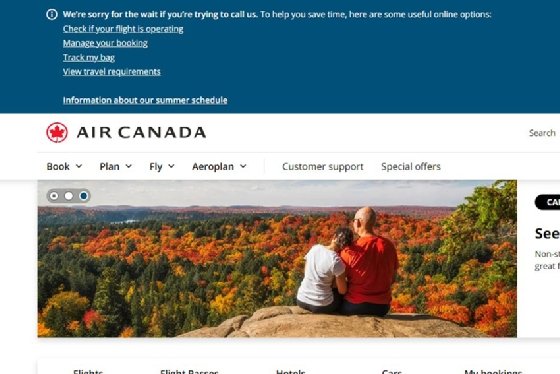
Getty Images
DOT dashboard, Biden regs address airline customer service
The U.S. Department of Transportation's new dashboard shines light on airline passenger rights, and President Biden proposes new rules to make fees more transparent.
Editor's note: This story was updated on Sept. 29, 2022.
Exorbitant flight cancelations and delays for millions of Americans this year have prompted the U.S. Department of Transportation to step in. Experts worry about how it will affect airline customer service and call centers, at least in the short term.
The DOT received 5,862 complaints in June in the wake of a particularly rough Memorial Day holiday travel season -- a 34% increase over May. DOT secretary Pete Buttigieg reported that 3.2% of domestic flights were canceled in the first half of 2022 and about 24% were delayed.
To spur improvements in airline service, Buttigieg wrote the CEOs of the 10 largest U.S. airlines and called for improved airline customer service. He also called for airlines to downsize flight schedules to better match staffing capacity and step up hiring -- with more competitive employee compensation -- to attract more workers.
The DOT went live with a public dashboard comparing passengers' rights for each airline according to airlines' customer service plans, documents the companies are required by law to file and maintain with the federal agency. The interactive dashboard promises to show stranded passengers what the airlines have committed to provide them -- such as refunds, meals and overnight hotel stays -- in their individual circumstances. In late September, the Biden administration that force airlines to disclose the "total cost" of a flight, including bag fees and policies governing delays and cancellations.
"The level of disruption Americans have experienced this summer is unacceptable," Buttigieg said in a letter to airline CEOs. "When passengers do experience cancelations and delays, they deserve clear and transparent information on the services that your airline will provide, to address the expenses and inconveniences resulting from these disruptions."

Buttigieg reminded the CEOs that the DOT is currently pushing for new regulations for airlines to provide passengers with clearer compensation rules when disruptions happen. Furthermore, the agency is "contemplating" further regulations to expand passengers' rights during schedule disruptions.
For now, he recommended that airlines assess their customer service plans to ensure they provide "adequate amenities" to passengers who must endure disruptions. At minimum, they should provide passengers with meal vouchers when delayed by three hours for circumstances within the airlines' control and hotel vouchers when stranded at airports overnight. Some airlines have already responded with plans to improve customer service.
Government oversight of CX
Industries such as airlines, banking and telecom have federal oversight of customer service, which adds a layer of accountability, said Liz Miller, vice president and analyst at Constellation Research. Buttigieg has attempted to address the problem of cancellations and delays -- although both aggrieved passengers and airline leaders will find something to complain about with the new DOT dashboard, she predicted.
"Customers are getting frustrated, and we're seeing the secretary speak to that frustration in a way that actually makes sense," she said. "It makes sense for the airlines to have clarified language so no one goes up and yells at the ticket counter lady anymore. It addresses customer experience and employee experience."
In clarifying customer service plan language and making policies more accessible to passengers, though, airlines will have to write clearer policies. Some airlines will have to make good on bad policies that she believes are deliberately vague.
"It's going to air some of the dirty laundry, some of the tricky language that's intentionally been put in," Miller said. "There are loopholes within loopholes within gray areas that make it really hard for a passenger in crisis, whose flight has been delayed and they missed a connection or [whose] flight has been canceled ... to find answers."

Contact centers may be swamped anew
Memorial Day travel disruptions hit airline contact centers hard, said Dan Miller, founder of Opus Research. Many changed staffing strategies. Air Canada, for example, put a message on its website to not call agents on the phone -- something that many of the airline's passengers had already learned through personal experience.
United Airlines employed "agent on demand" QR codes on posters in their hubs that would initiate a chat with a live agent. It is being piloted in Chicago and Houston, with expected rollouts in Denver; Los Angeles; New York/Newark; New Jersey; San Francisco and Washington, D.C., by the end of the year. The system purportedly can translate chats into 100 languages.
Measures like those, however, don't solve the problem of cancellations and delays. Dan Miller predicted more misery, at least in the short term. He said he believes the DOT dashboard, he believes, won't affect contact center volume but rather the mix of topics customers discuss with agents.
"The experience will probably remain the same," he said. "My counsel is to have patience, continue to expect long wait times, [and] use the most convenient means to contact a carrier -- which could be their mobile app, website, Twitter or other social platforms."
Customer service operations still haven't recovered from the pandemic and the Great Resignation, said Brad Cleveland, customer service consultant and cofounder of the ICMI contact center association. Airline contact centers were swamped with calls during 2020 as travel halted and passengers en masse sought refunds for canceled travel. Then, the airline industry was decimated as revenues declined almost 70%, leading to layoffs.
Some airline contact centers partially recovered by adding new automation technologies for self-service and creating incentives to keep employees, Cleveland said, but "we're not quite there yet."
The new DOT dashboard may put pressure on customer service operations to address problems they didn't cause and aren't equipped to handle, Cleveland said. The federal air traffic control system is also partially to blame: When air traffic control holds up a plane, for example, should a connecting flight be delayed for a few late passengers?
"It's been a comedy of errors and problems," Cleveland said. "We ought to think about unintended consequences here. This is like any other customer service environment. I'm generally for data transparency and information being available -- that's all terrific. But it's really all about what we're measuring, how we're measuring it and how the airlines respond."
Liz Miller said the good news is that more airline customer service operations have already purchased the technologies they need to update policies, support higher volumes and route customer calls to the right agents. It doesn't take much effort to re-prioritize calls so that, for example, passengers whose travel has been disrupted are put to the head of customer service queues -- even ahead of loyalty program members booking their next vacation.
But there's no doubt that airline customer service agents are going to bear the brunt of these new rules, she said, even if they don't set the policies, control the weather or influence the air traffic control network.
For his part, Buttigieg said he is looking for a baseline customer experience from the airlines.
"I want to reiterate what you have heard me say often," Buttigieg said in his letter to the airline CEOs. "Americans expect when they purchase an airline ticket, they will arrive at their destination safely, reliably, and affordably."
Don Fluckinger covers enterprise content management, CRM, marketing automation, e-commerce, customer service and enabling technologies for TechTarget.








